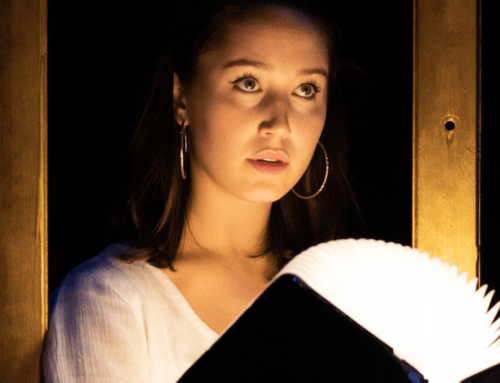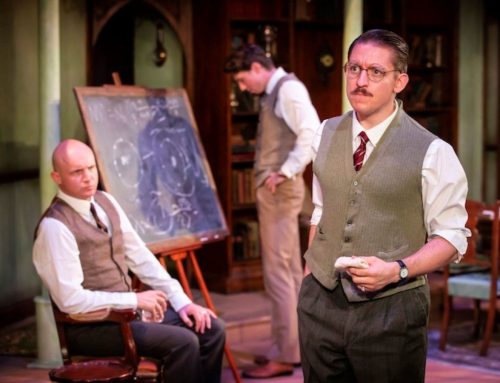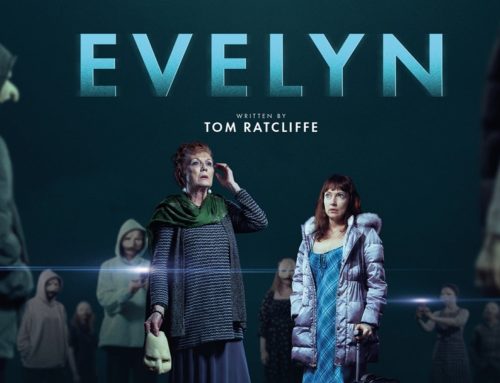Though set fifty years apart, it is hard to escape the shadow of Arthur Miller’s masterwork The Crucible when watching Joanna Carrick’s solid history play The Ungodly. Both deal with real-life 17th-century witch-hunts and show how fear and hysteria can lead otherwise rational people to abandon reason and morality. Both are written in stylised vernacular English, though Carrick lacks Miller’s flair for conciseness and economy in dialogue. In their reflection of fractured and polarised societies, where intolerance and ideological fervour walk hand in hand, both talk as much of today as of the past.
So, it is easy to think of The Ungodly as The Crucible’s British cousin: twin warnings from history on the dangers of unchecked power. In fact Carrick’s work, currently at the Southwark Playhouse after a successful 2023 run at Ipswich’s Avenue Theatre, has additional concerns. The piece is as much about the weaponisation of grief and the search for vengeance as anything else.
Meticulously investigated through parish records and court reports, The Ungodly offers an origin story for the wicked, self-appointed 1640s Witchfinder General Mathew Hopkins (Vincent Moisy). The real-life Hopkins was responsible for the deaths of an estimated 200 people in East Anglia, primarily women, in a witch-hunting career that lasted a mere three years. The victim’s “crimes” were no greater than mumbling curses and casting occasion filthy looks. “It’s an apocalyptic fight for God, and it’s a fight that we must win” Mathew tells us, and win he will, at any cost.
We first meet Mathew as a shy, suggestible, stuttering adolescent, who hears voices and is scared witless by lectures on the power of demonic imps. The boy initially attracts empathy as a kind of outcast whose tendency to see the devil in everything and everyone is more comical than menacing. His subsequent (not entirely convincing) transformation into an amoral monster, devoid of reason and humanity, is seemingly driven by paranoia, misogyny, and barely suppressed psychosis. Dim teen girl Rebecca (the excellent Rei Mordue) embodies the man’s multiple victims. “You may yet escape the devil, Rebecca” Mathew sneers when offering the frightened, snivelling girl a choice: save her skin at the cost of her mother’s life.
Moisy overplays Hopkin’s transition. The reserved youth evolves into a stock villain (with a hint of namesake Vincent Price about him) without stopping for breath, which leaves a sense that we are missing something about his journey. Emerging as more rounded characters are Hopkin’s half-sister Susan (Nadia Jackson lives and breathes maternal loss) and her husband Richard (Christopher Ashman in lord-of-the-manor country-bumpkin mode).
Grief-stricken, hardened by the hardships of farm life in the isolated village of Mistley, the couple accept the serial deaths of their infant children with a stoic belief that it is all God’s will. That their offspring reach heaven “with virtue and innocence intact” is as much as they can hope for, particularly as their first lost child came about from pre-marital sin. “What power has a woman to raise a storm?” says Susan mockingly of Mathew’s early suggestions that devilish forces are at work. Richard initially views the supposed witches with patrician disdain, “harmless crones…, who all want the world run their way”.
In a playbook familiar to today’s politicians, Hopkins’s charisma slowly entices the young couple to believe they are victims, weaponising their justifiable sense of loss and hunger into seething hatred. Kindly, likeable Susan embarks on a quest for vengeance and retributive justice, as if redemption will be found in the burning alive of fellow women. Richard, more reluctant at first, succumbs to the temptation of fellow travelling. Deeply in love with his wife, one senses what he wants most is a quiet life in a cocoon of silk and fine lace. His is a world “not of carnal lust but tempered passion” although as passions rise, like a kind of Martin Niemöller figure, he refuses to speak out.
Carrick’s dialogue generally feels authentic without sounding overly old-fashioned or biblical. Occasionally gears clank: “It’s affinity, not consanguinity that binds us together,” is Susan’s unlikely confession to Mathew over the kitchen table. What impresses most here is the detailed evocation of the banality of evil. The lawyerly witchfinder cross-checks forced confessions to ensure they match in every detail. The names of supposed witches’ pets are precisely recorded with jobsworth efficiency. The message here? If evil walks among us it is in the form of a slick-haired, snake-oil salesman like Hopkins, not the helpless and powerless women he sets out to disparage and diminish.
Writer and Director: Joanna Carrick
More Recent Reviews
Playfight. Soho Theatre.
Writer Julia Grogan’s breathtakingly assured debut play arrives at Soho Theatre following stellar reviews at the Edinburgh Fringe and [...]
All The Happy Things. Soho Theatre.
Naomi Denny’s three-hander comedy-drama All The Happy Things covers familiar themes within a recognisable premise. A grieving protagonist comes [...]
Telly. Bread and Roses Theatre.
The challenge with absurdist comedy is that many people do not find it funny. Laughing at the sheer weirdness [...]






